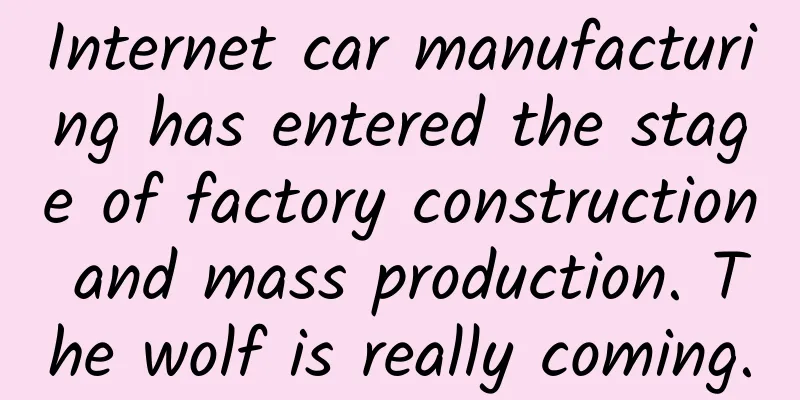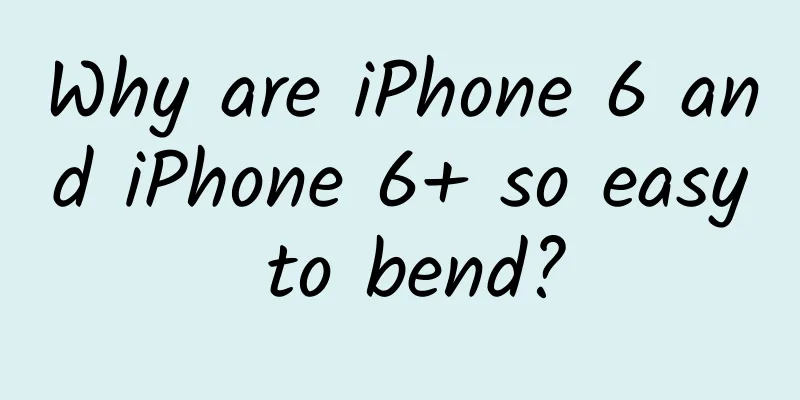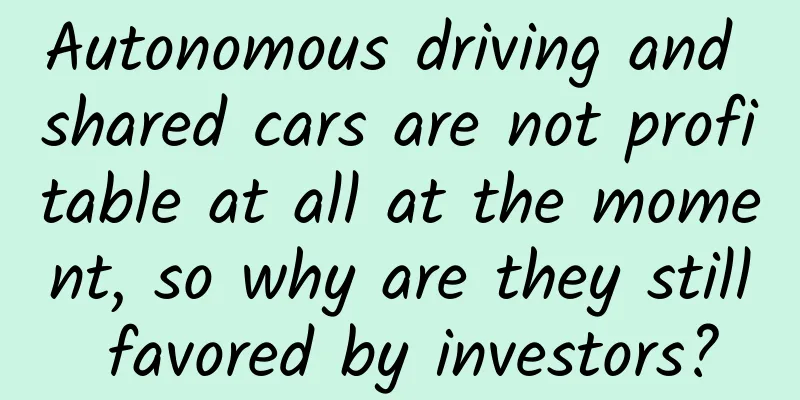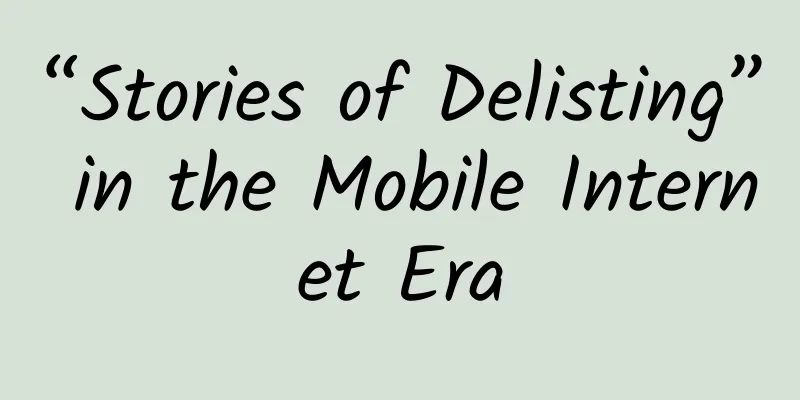Faith and the Cage, a documentary about Steve Jobs
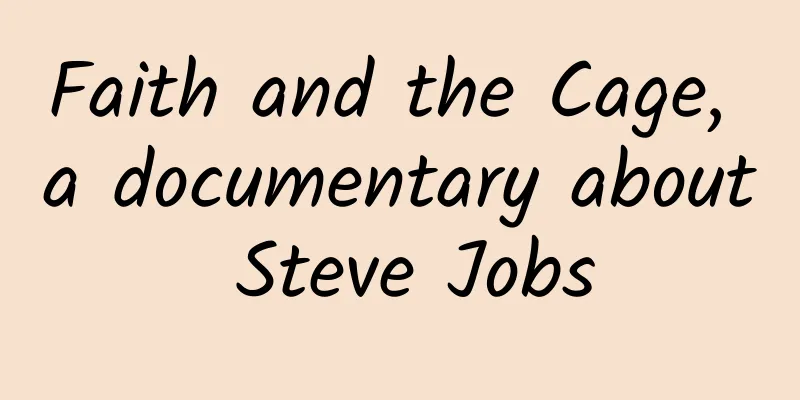
|
“A churchman without empathy” That’s what Alex Gibney realized when he made the Steve Jobs movie. Near the end of the documentary "Steve Jobs: A Robot Life" directed by director Alex, the audience is presented with a blank iPhone screen. Some images of Jobs are reflected on the black glossy surface of the screen, and gradually the picture switches to Gibney - this is an affirmation of the theme of Gibney's documentary: we will eventually live in machines. Documenting or filming anything about Steve Jobs is an awe-inspiring feat. Walter Saxon’s Steve Jobs became a best-selling book in 2011, and Brent Schlender and Rick Tetzeli’s Being Steve Jobs came four years later, not to mention the upcoming movie starring Ashton Kutcher and directed by Danny Boyle. There are other documentaries like this, all of which provide detailed profiles of life’s greatest and most legendary heroes. His job is to make a great product - screw everything Gibney has produced several highly acclaimed essays, and he manages to carve out a huge space for himself within the larger framework of Jobs' life events. He sketches a "bold, brilliant, ruthless" Jobs as the backdrop for his narrative, and uses his own creative process to portray and bring him to life. The end result is a detailed and effectively documented portrayal of Jobs and Apple customers like you and me. "When I started shooting the film, the first person I contacted was Laurene Jobs. It seemed that she was willing to communicate with us, or at least we were very eager to talk to her, but she finally decided to withdraw. In fact, I later heard that she had contacted many similar people and asked them not to tell me. This matter did cause us a certain degree of difficulty. Interestingly, at the end of the shooting, both Laurene, who rejected us at the beginning, and Apple, they looked at me from another strange perspective, thinking that I actually did not continue to pursue or explore all this." “Sometimes when your path is filled with roadblocks and obstacles, you find a more interesting route, and it becomes part of your journey to see who speaks to us and what things lead us to people we wouldn’t have otherwise talked to. Bob Belleville (Mac engineering director 1982-1985) is a classic example. We approached him and made him a character in large part because we found out that Jobs had spent a lot of time with him during his time in Japan. But we didn’t know until we talked to him that he had a huge influence because of this experience. So I think sometimes when you are rejected, the difficulties and obstacles will lead you to other interesting places. You can put material in a written text that you can’t really put in a film, which is to say, you get forensic detail here. In the film, you have to look at it in a different way. If you go back to when Jobs stepped down, you can actually see the full story in Forbes magazine. But you don’t see Steve’s sarcasm and all the bad intentions he had towards the SEC. One of my favorite moments is when a committee worker asks him, “What are you going to do next?” He says, “Next, I’m going to look for the next CEO on the committee.” And the worker says, “What’s the result?” Jobs looks at him with a sneer and a dark look and says, “There’s no one.” In the film, the amount of information that this employee and Jobs have in their conversation is something that you can’t get from writing them in a book. A Christian without Sympathy There are many Zen Buddhists in Japan who are essentially at peace with Jobs and his fascism. If you study Zen Buddhism in depth, you will understand that Zen does not allow you to be cruel and obsessive, but it allows you to act in some ways and ignore everything else. This is also how Jobs understood Zen, so he made products that were so beautiful and so good that they really attracted people and changed the world. Zen encourages believers that if you focus on doing one thing, you must do it well, and everything else is bullshit. This may be one of the reasons why he accepted Zen. Jobs once said bluntly: "It's a waste of time for me to show up and give money." He believed that his energy should be spent on making perfect products, but everyone's focus is on saying that this believer has no compassion. His job is to make the best product - fuck everything! Finding Peace in Japan "Japan made Steve seem to let down his protective armor a little bit, which is interesting. But he didn't have a strong desire to stay in Japan, and he could have stayed in other countries. So I don't think anyone would be interested in this angle of the story. If there was some reason for Jobs to go to Japan, it would be easier for him to establish some relationships with others." Steve's Value "Someone once asked me, 'What would I ask him if he were still alive?' If I had a question for Steve Jobs, it would be 'What are your values?' That question is asked repeatedly throughout the film and by Steve Jobs himself. He keeps talking about the values that Apple holds. Even though the Gizmodo incident wasn't a big story for Apple, it was important to Jobs' values. In the Walt Mossberg/Kara Schweischer video, when they talk to Jobs about the iPhone leak, he just says, 'Yeah, whatever,' but he still curses. When he was dying, did he want to use the time he had left to dox all those people at Gizmodo?" God of Silicon Valley Steve Jobs is often called a XXX, even though he did so many admirable things. But that doesn't mean he's a person who deserves admiration. Especially because Steve Jobs is from Silicon Valley, he has become a huge benchmark, and everything Jobs can do has suddenly become what all Silicon Valley people should do. If Steve is harsh on his employees, then you should also be harsh on others. - Because that's the key to success! So this is not a grand slam movie - it actually expresses a reflection on his own life and what it means to us. " Faith and prison “I came out of the Scientology movie, The Mist, and was still immersed in the Steve Jobs movie, where I wasn’t going to discredit anybody at Apple, but I was going to expose some of the facts. One of the things I learned from that was the idea of belief and prison, which Larry [Wright] talks about a lot in his book [Scientology: Hollywood, Faith and the Prison]. Some people are imprisoned by something they believe in so strongly. Because they can’t accept the possibility that it could be flawed. They have such a deep affection for both the product and the person that they cannot tolerate any form of criticism. In fact, in a way, Apple's reaction and performance to this movie are consistent with Scientology's reaction and performance to the movie "The Mist". Their original intention is to try their best to maintain this loyalty: We have your strong support. Everything at Apple is perfect. Don't pay too much attention to those behind the screen. Because they have a deep affection for both the product and the person, and they can't tolerate any form of criticism. Why should it be like that? Even if we admire Apple's certain technical areas very much, why can't we discuss how little Apple employees are paid in China? Why can't we discuss how terrible the working environment there is?" Story maker "Computers have become part of humanity, and humanity has become part of computers. Jobs was very smart, and he knew how to make a personal computer. The iPod is the most intelligent of all Apple products. Because it is not just a machine that plays music, but an electronic device that people want to have to express themselves. So far, we are still frustrated about Jobs' departure because no one is around to talk about it. I think the biggest difference between Steve Jobs and others is that he is actually a storyteller. I am very sad that he is gone because there is no one to tell us those stories anymore. Robot Life "Ending in this way is not only for Jobs, but also for us. There is no definitive conclusion to the way the Jobs movie ends. Because in the end it raises the question: "How do we position ourselves in relation to these devices? What does this movie reflect about the relationship between Jobs and the company and the people he met?" The Verge: This is a dark movie, and judging from the movie music, the mood is not that positive. Gibney: It was both bright and dark. The "Tambourine Man" that you hear in the opening credits and the people holding candles and iPads wasn't a show or a satire. There was real affection for Jobs. We did find some important people who had a connection with Steve. There was SEC testimony that helped to shape the film. There was a video of Steve talking to a small group in Silicon Valley, and he was thinking very hard. At the end of the conversation, he said we are all below the surface, and our contribution is what is not shown. At the beginning, we didn't have a design, we just wanted to make the most of the materials. But in the end, there was indeed a grand design in it. The Verge: Regarding Jobs' life, many reporters look for breakthroughs from early Apple and NeXT employees, and Jobs seems to be powerless to control their words and deeds. But since Jobs returned to Apple, the situation has changed. It is difficult for us to see the real him. Do you also encounter such problems? Gibney: I don't see more than anyone else, and I agree with you that the early Steve Jobs and the later Steve Jobs are very different. Brent Schlender and Rick Tetzeli (translator's note: fastcompany's editor) describe this change in the book "Becoming Steve Jobs". But I think what drives people's perception of him is power, and he has enough power to control what people say. He is playing his role carefully. The Verge: A lot of the real stories don’t get told. Especially when decisions were made around products that didn’t make it to market. Gibney: I think Steve is the greatest novelist of Apple. He allows his products to survive with a lot of exposure. He is not a person who can control the product. He chooses to walk in the middle of two paths. Moreover, Apple also has many high-end talents to create efficient work for him. I wasn't there, but a lot of people told me that it was like Steve didn't come into the office every day and tell us what was going to happen or how it was going to go. He was like the leader of a band and he knew that there were really good musicians in the band, and that was very important. But I also think that the idea that he decided to bring it to the public was very important. Another very important point was that the public thought that Jobs could do anything. He was like the Prime Minister, who could see into the future, and he could just go home at night, sit at home and imagine what the next product would be, and think about new technologies and how they would be manufactured and designed. But that was not the case at all for me. Steve was not really an inventor, he was a novelist, and he wrote stories that would be heard all over the world. The Verge: I noticed the theme of novelists came up a few times in the movie, but I think what the movie told me was, "Steve is a very great novelist, but he doesn't have much control over the product behind it." - This theme was clearer than anything else mentioned in the movie. Is it because this is a movie without a specific theme? Gibney: Sometimes I think it's good to take material out of the movie. When you hear Jon Rubinstein talking about how to bring the iPod to market, it's clear that they were making a music player. But they didn't know how to make it until Jobs found a small drive. But it's glossed over because the movie is not about the technology of the product or how these products are invented and manufactured. I'm more about the value of it. And the picture of how the employees work is also glossed over. I think the moment when Steve Jobs returned to Apple was really worth watching. Many people called them the "dream team" and Apple may have really returned to its original state because of Steve Jobs' return. I think when that scene was presented in the movie, even as a commentator, I had to say, "I remember this", and I felt that at that moment, everyone could be immersed in it. The Verge: You just said that this is not a film about technology, but a film about the value of Apple products and the value brought by Jobs' return. And you focused on how he used his advanced and rebellious values to control such a huge system, and he did not need to use his later values to maintain the huge system that belonged to him. Maybe I think too much, I think that when a person is frequently involved in Apple's affairs, he will be very charming. Gibney: For me, he and his growth are one of the most striking things. I think there's a deeper value in what he did with his counterculture values, even if he didn't think he got anything out of them. Frankly, he died before the world was fully convinced. If he were still alive, would he have made the blue box with Woz? Would he have been chasing those guys at Gizmodo at the end? Do you think there's anyone who was as rebellious as he was in selling the blue box, and was proud of it, and believed that Apple could still exist with that belief? That's the courageous entrepreneurial concept. Unfortunately, Apple couldn't do that. Jobs couldn't make those two things work together. Jobs was an absolute genius when it came to starting a business. Because when you use these products, you kind of have a higher level vision of it. Martin Luther King, Gandhi, Rosa Parks, Einstein, they all had "different thinking". But in fact, Apple's approach is not different. From the company's point of view, they don't think there is anything different. But when Steve used his Zen Buddhism to integrate his creativity, his products became different, the products were so beautifully designed, they would naturally connect with customers and make customers want to have them desperately. The rest of the material (such as the description of Chinese employees and pollution in China) is nothing special. So this clip certainly has no value in subverting traditional movies. I found the really interesting clip to be his time in Japan. The scene describing Steve's visit to Japan not only makes people feel relaxed, but also makes people feel a little sympathetic at that moment. However, he has never visited all of Apple's industries in China, ever! The Verge: It does sound appealing. I just never saw it that way before. Tim Cook keeps going back to China, and he keeps talking about the country. Gibney: Jon Rubinstein would go to China quite often, and when he would move from seat 3B to seat 3C, the flight attendant would say, "Wait a minute, sir, don't you want to go back to your usual seat?" The Verge: At the end of the movie, you tell some stories about Apple fans and Steve Jobs. I'm going to the iPhone event next week, but I think in many ways, Apple has become a completely different company. Although their products are very good, but... Gibney: Their products are really good, and I'm really interested in the Apple Watch, but I don't want to add something that I haven't already done. I mean, it's dangerous to do this: when you design a marketing strategy in a company, you only explore the future around the material given to you by this person and tell you what you will get next. So once this person leaves, the whole company will inevitably fall into a state of loss. Jobs was such a successful person. But this was not a good way for him to gain a foothold in the world. One of the important reasons why his departure made everyone sad was that he closely connected the development of personal computers with humans, thus changing the entire era. So this movie will definitely make everyone feel different because this movie describes more than just Steve himself. The Verge: Do you think Apple's quality could have been successful without Jobs' supervision? Gibney: I think they can. This is a big company with a lot of smart people. But they're going to have to find a way to change themselves. But they're not going to hit a home run every time. You have to get to the end and hit a few more around the flag. But there's still a bit of Steve Jobs's ruthlessness in Apple, and that may not be a good thing. |
<<: Experience Sharing - iOS Game Development in One Day
>>: Why programmers need to grow slowly
Recommend
This year, my life was torn apart by WeChat
[[127954]] In 2014, we woke up on WeChat, fell as...
One Year Notes for iOS Programmers - Learning
[[140168]] Text/Some Bird Preface Before I knew i...
Do you want to have sex as soon as you start dating? What's wrong?
Expert of this article: Wang Li, deputy chief phy...
Understanding Apple Watch in one picture
This morning, Apple's Apple Watch was finally...
In addition to volcanoes and strong men, Tonga also has these things you have never seen
Before this volcanic eruption, most people's ...
Do you know about natural history painting? It turns out that the beauty of nature can be recorded in this way...
In spring, flowers bloom in full bloom. People en...
How much does it cost to join a women's clothing app in Beijing?
For entrepreneurs, although mini program developm...
The probe is aimed at the Jupiter system, and humans are relentlessly pursuing distant mysteries
Recently, the European Space Agency's Jupiter...
Is it expensive to produce the Hengyang Metallurgical Mini Program? Hengyang Metallurgical Mini Program Production Cost and Process
How much does it cost to produce the Hengyang Met...
Gree Group's acquisition of Changyuan failed, Changyuan fell to the limit in advance
After a month, Gree Group's 5.2 billion acqui...
How to operate Pinduoduo paid membership!
There are endless ways to play with paid membersh...
What are the “menstrual-like” hot spots in Beijing, Shanghai and Guangzhou?
In this article, Li Jiaoshou analyzes: After chan...
I have compiled 15 online channels for event promotion. I recommend you to save them.
Planning a complete event plan includes five impo...
Alibaba and Skyworth jointly release smart TVs to join Alibaba Cloud system
[September 10 news] Previously, Alibaba launched ...

